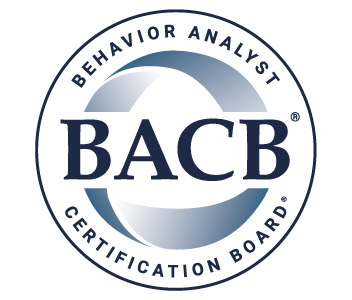These Guidelines for Use of BACB Intellectual Property (“Guidelines”) apply to any third parties (individuals or organizations) that use or intend to use intellectual property owned by the Behavior Analyst Certification Board® (BACB®). Intellectual property owned by the BACB includes but is not limited to its trademarks and copyrighted materials. Misuse of BACB intellectual property is a violation of the BACB’s ethics requirements and may also be a violation of state, federal, or international law.
TRADEMARKS
BACB Logo and Company Name
The BACB logo may not be used by third parties under any circumstances unless approved in writing by the BACB. The name “Behavior Analyst Certification Board” and the acronym “BACB” may only be used to refer to the organization. Any suggestion or implication of endorsement, affiliation, or support by the BACB is strictly prohibited.
Certification Marks
A certification mark is a type of trademark used to show consumers that particular goods and/or services, or providers of goods and services, have met certain standards1. The certification marks owned by the BACB (listed in the BACB’s Terms of Use) may only be used by individuals who are certified by the BACB, and certified individuals may only use the applicable certification mark to indicate that they are certified.
Unauthorized Use
Company Names. BACB-owned trademarks should not be included in company names. Although a BCBA named “Jane Doe” could own a company called “Jane Doe, BCBA,” this is strongly discouraged. One of the reasons this is discouraged is because the inclusion of a BACB-owned trademark in the company name would only be permissible as long as Jane Doe is certified. If her certification were to expire or otherwise become inactive, she would need to remove the company’s digital and physical presence immediately. In other words, Jane would be required to change the name of her company. Additionally, Jane Doe would be prohibited from registering her business name as a trademark since BACB-owned trademarks may not be included in other trademarks (or even descriptions of other trademarks).
Email Addresses. BACB-owned trademarks should not be included in email addresses, whether as part of the username or the domain name. See the “Company Names” section above.
Social Media Profiles. Use of the BACB logo and company name in social media profiles is strictly prohibited. BACB certificants are discouraged from using their certification marks in their social media profiles for the reasons stated in the “Company Names” section above.
Domain Names. The BACB prohibits the use of its trademarks in domain names, especially where the use may give the appearance of sponsorship or endorsement by the BACB or convey actual BACB activity.
Product or Service Names. BACB-owned trademarks may not be used in product or service names (e.g., book titles) without permission from the BACB (see Section 13 of the BACB’s Terms of Use). Permission will not be granted if the name gives the appearance that the product or service originated from the BACB.
Merchandising. BACB-owned trademarks should not be used in merchandising. For example, selling products such as T-shirts, hats, stickers, water bottles, or any other products that contain a BACB-owned trademark is prohibited. Generic terms such as “Behavior Analyst” or “ABA” are not prohibited by the BACB.
NPI Database. BACB certificants in the U.S. should not include their certification marks when applying for an NPI number through the National Plan and Provider Enumeration System. This is because numerous third-party websites scrape this database and publish information on their own websites, from which a certification mark can be difficult to remove in the event their certification expires or otherwise becomes inactive.
University Program Names. BACB-owned trademarks should not be used in university program names. Transcripts and diplomas may not use BACB-owned trademarks. For example, an ABA program designed to help students achieve their goal of becoming a BCBA should not be named “BCBA Master’s Program” or “BCBA Graduate Certificate Program.” Acceptable alternatives include but are not limited to: “ABA Master’s Program” and “ABA Graduate Certificate Program.”
COPYRIGHT
The BACB holds the copyright to all materials and content contained on its website unless otherwise specified. The BACB also holds the copyright to all of its examination items. See the BACB’s Examination Terms and Conditions for important information regarding the BACB’s examination content. Unauthorized access, distribution, or publication of BACB copyrighted materials is strictly prohibited. This includes, but is not limited to using the BACB’s copyrighted materials to train artificial intelligence software (e.g., large language models).
Authorized Use
All content and materials on the BACB website not otherwise prohibited by this policy are subject to “fair use” provisions of U.S. or applicable international copyright laws (see the “About Fair Use” section at https://www.copyright.gov/fair-use/). Proper citation must be included for any content or materials used under fair use provisions.
Any use of BACB copyrighted materials that goes beyond fair use must be approved by the BACB. Requests for permission to use BACB copyrighted materials must be submitted through the BACB’s Copyright and/or Trademark Permission Request Form, which may be found in Section 13 of the BACB’s Terms of Use.
1United States Patent and Trademark Office. https://www.uspto.gov/trademarks/apply/certification-mark-applications.
